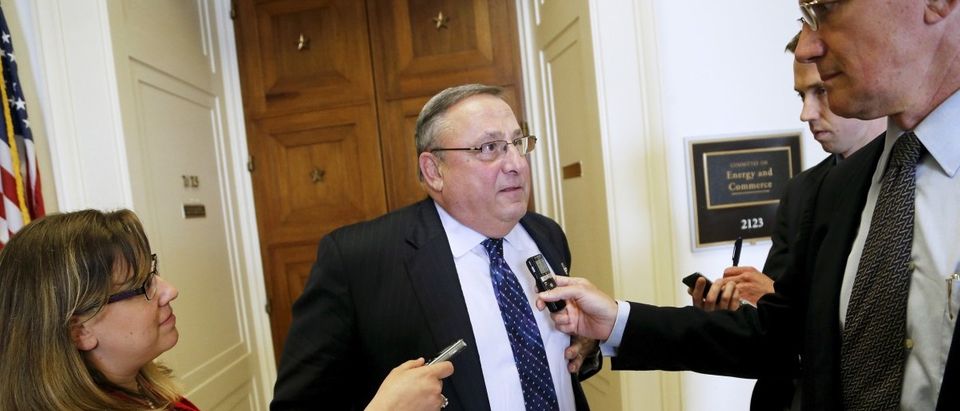Residents of Maine are currently locked in a debate over whether an upcoming ballot initiative to expand Medicaid access will describe the program as “insurance” or “welfare.”
The public comment period, which allows Maine residents to weigh in on how the program should be described on the ballot, closes Friday, at which point Maine’s secretary of state will finalize the language for the first-ever popular vote to expand Medicaid access.
Maine’s Republican Gov. Paul LePage has vocally opposed efforts to characterize Medicaid as an insurance program, arguing the term doesn’t accurately reflect how the program functions.
“It’s free health care paid for by the taxpayers, and it’s got to be said that way,” LePage told talk radio hosts at WGAN last Thursday. “It’s pure welfare. If you don’t want to call it welfare, call it an entitlement.”
LePage also vowed to sue Maine Secretary of State Matthew Dunlap if he decides to use the term “insurance” on the Medicaid expansion ballot, which will be voted on in November.
LePage, a staunch advocate for fiscal conservatism, opted to shut down the state’s government in early July rather than accept a budget package that raised taxes. (RELATED: Maine Gov: ‘A Shutdown Is Necessary For The Future Of Maine’)
The conservative governor has vetoed five separate attempts by the state’s legislature to expand the program since Obamacare was passed in 2010. If passed, the ballot initiative will raise the income threshold for Medicaid eligibility slightly above the federal poverty line, expanding Medicaid access to an additional 70,000 Maine residents under 65.
Robyn Merrill, executive director of Maine Equal Justice Partners, a nonprofit which gathered 67,000 signatures to bring Medicaid expansion to a popular vote, maintains that Medicaid is not a welfare program because it does not provide cash to recipients.
“Medicaid doesn’t provide cash payments to those who would be covered under the expansion, but instead reimburses health care providers, including Maine hospitals, many of which are struggling to cover the cost of the state’s uninsured as charity care,” Merrill told the Portland Press Herald.
Robert Rector, a senior fellow specializing in poverty research at the Heritage Foundation, disputed the notion that Medicaid can be characterized as an insurance program in any meaningful sense.
“It’s clearly a means tested welfare program,” Rector told The Daily Caller News Foundations. “To say it’s a social insurance program doesn’t mean anything.”
Rector said that insurance should instead be used to describe programs in which individuals pay into a fund and are later reimbursed, as is the case with social security, not programs like Medicaid which simply provide government support to low income individuals.
David Farmer, the communications director of Mainers for Health Care, argued that Medicaid can accurately be described as insurance because it reimburses health care providers in much the same way as an insurance company would.
“It’s not reasonable to argue that Medicaid is not insurance. It’s purely political,” Farmer told Talking Points Memo. “When the federal government calculates the uninsured in the country, Medicaid counts as insurance. This is just a messaging opportunity and an effort to try to take what is a bipartisan issue and make it partisan.”
Rector pointed out that the term “welfare” has been politically toxic for decades, arguing that Democrats have avoided applying the term to government programs that warrant the label.
“In general the left has hated the world welfare for about 40 years, so by the left’s prescription there are no welfare programs,” Rector said. “Food stamps is a nutrition program, its not a welfare program, the earned income tax credit is income support.”
Rector referred to the group of roughly 90 means-tested federal assistance programs as the “hidden welfare state,” because he believes the programs, which cost the government #1.1 trillion annually, amount to welfare but are never described as such.
“[Democrats] understand that the public doesn’t like the term welfare, which generally refers to low income people who are getting something for nothing, so they’ve moved aggressively to get rid of it,” Rector said.
All content created by the Daily Caller News Foundation, an independent and nonpartisan newswire service, is available without charge to any legitimate news publisher that can provide a large audience. All republished articles must include our logo, our reporter’s byline and their DCNF affiliation. For any questions about our guidelines or partnering with us, please contact licensing@dailycallernewsfoundation.org.


